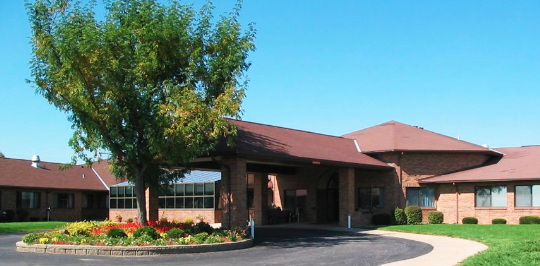Senior Assisted Living Facilities – Are They Right For Your Parents?
It’s Friday and mom and dad want you to have lunch with them at a “senior living center” they are considering moving into. You plan on rushing home afterward to meet with your daughter who is cheering at her high school football game tonight. Life today is active, especially for women aged 45 — 56 who care for both their parents and children. This is the fourth of a six-part series for these people caught in the “sandwich generation”.
The simple fact is that it will be tough for mom and dad to stay in their home. They have had a homemaker to help them and a handyman to do routine chores and maintenance, but they are getting to the point where they need more help. Now, the issue is becoming whether or not it is safe for them to stay in their home.
There are several things you can do. First, find an expert who can come into their home and analyze the environment for safety. Is the laundry downstairs? Do they have grab bars in the bathroom? Are there throw rugs in the house? There may be simple answers to make your parent’s home safer.
“Senior Living Complexes” vary substantially in independence, services, and cost. Your parents could need an apartment with little to no services up to skilled, hands-on daily services, or more likely a place in the middle. A newer concept is a facility offering a complete continuum of care. They have apartments and/or condos, assisted living with some services, to an infirmary for someone who needs a great deal of care and all of this is provided on one campus. Other people move into a very nice complex and decide that they will move to another location if ever they have the need. In either case, it may prove to be no more expensive than their current living situation and may save money on healthcare. As a bonus, people living in a complex have a better chance to socialize, exercise, and may enjoy a better quality of life.
Depending upon income and assets people can choose “assisted living” or “supportive living”. Both can provide limited hands-on care; however the substantial difference, other than the amenities/etc, is the type of state license. Supportive living provides a living environment for people either on or that may be spending down to public aid; assisted living is private pay. In addition, Central Illinois has several good “memory units” where they specialize in care for people with dementia. Other facilities specialize in rehab services, to provide therapies to get a person back home following an accident or debilitating illness.
A plan for the future can be created to give your parents, you, and your siblings’ peace of mind and lessen the chaos of a crisis. If there is a medical condition such as Alzheimer’s where your parent will decline in daily abilities, it would be best to consider and visit living facilities. These buildings are designed and built for seniors with the limitations of aging in mind. As many people are reluctant to move from their homes, they may find themselves much more socially active and happier in the long run.
Coordinating care for your children and parents simultaneously is not easy. What can you do to manage this? Three words of advice: Plan, Plan, and Plan. Legal, financial, residential, mental, and physical healthcare elements must be addressed prior to a crisis. A sandwich generationer should guide their parent through these issues and the primary issue of safety while being careful not to take all control away from a parent. Once again, it is important to start talking, making suggestions, and guiding early, do not wait for a crisis.





